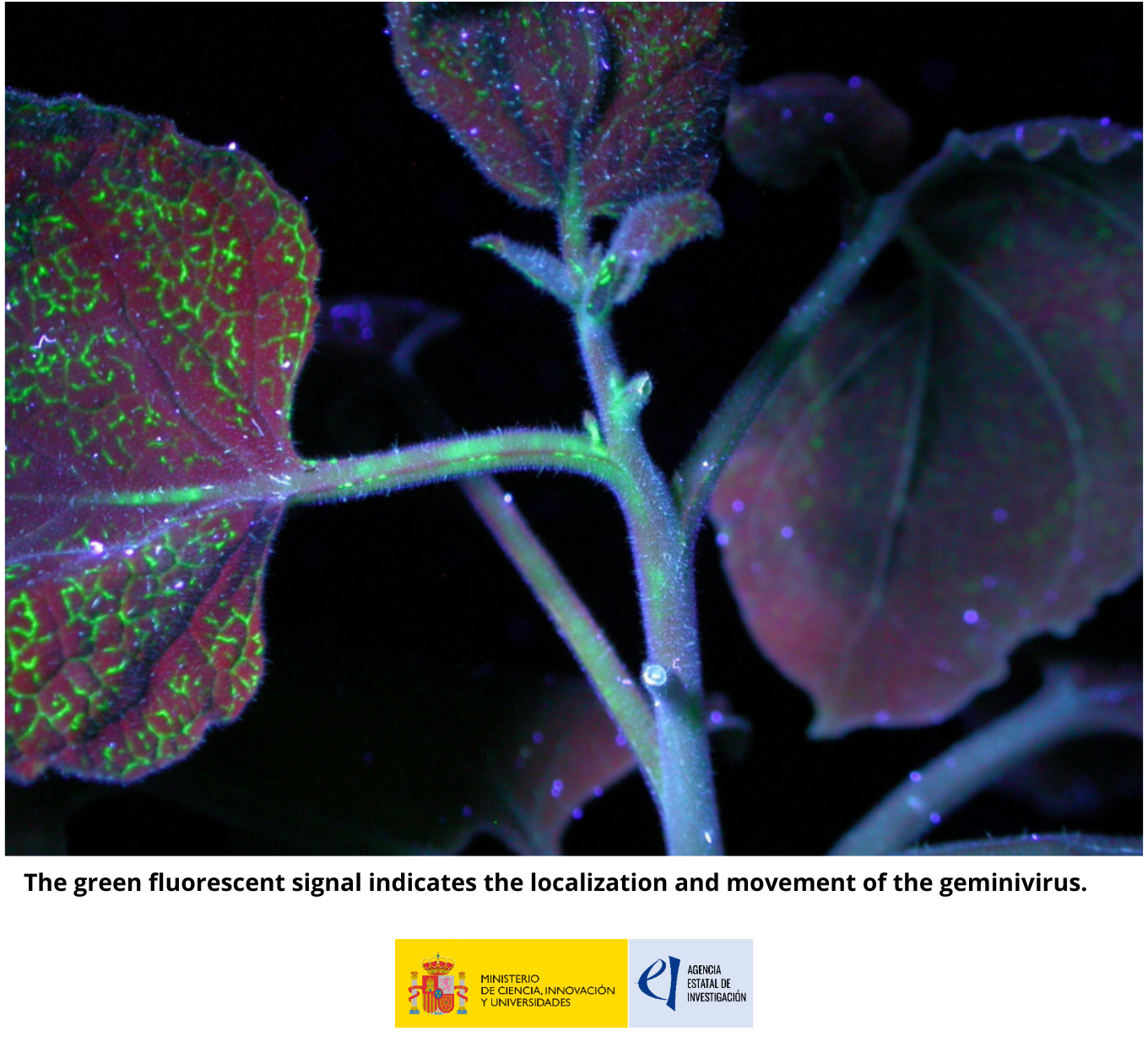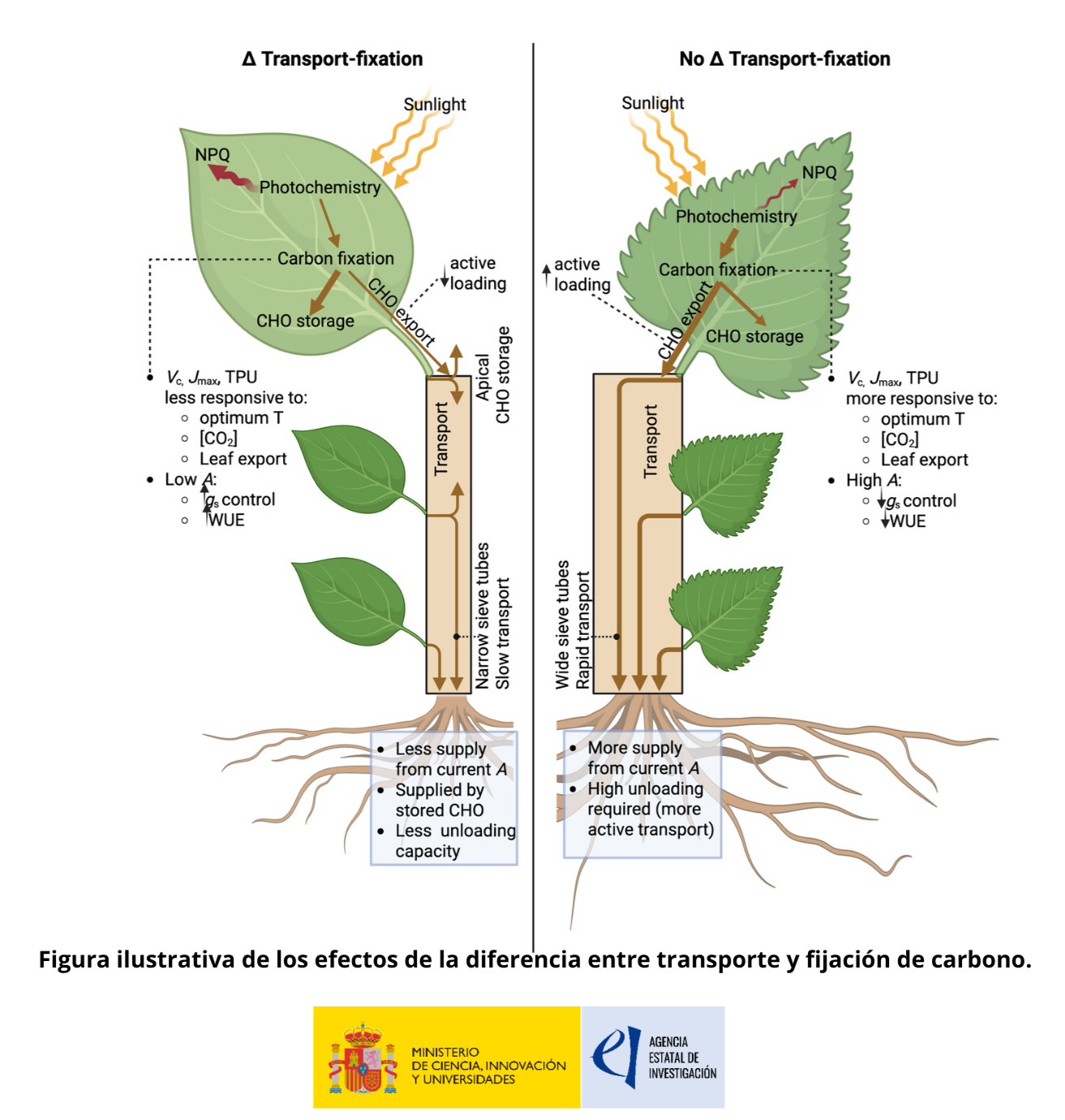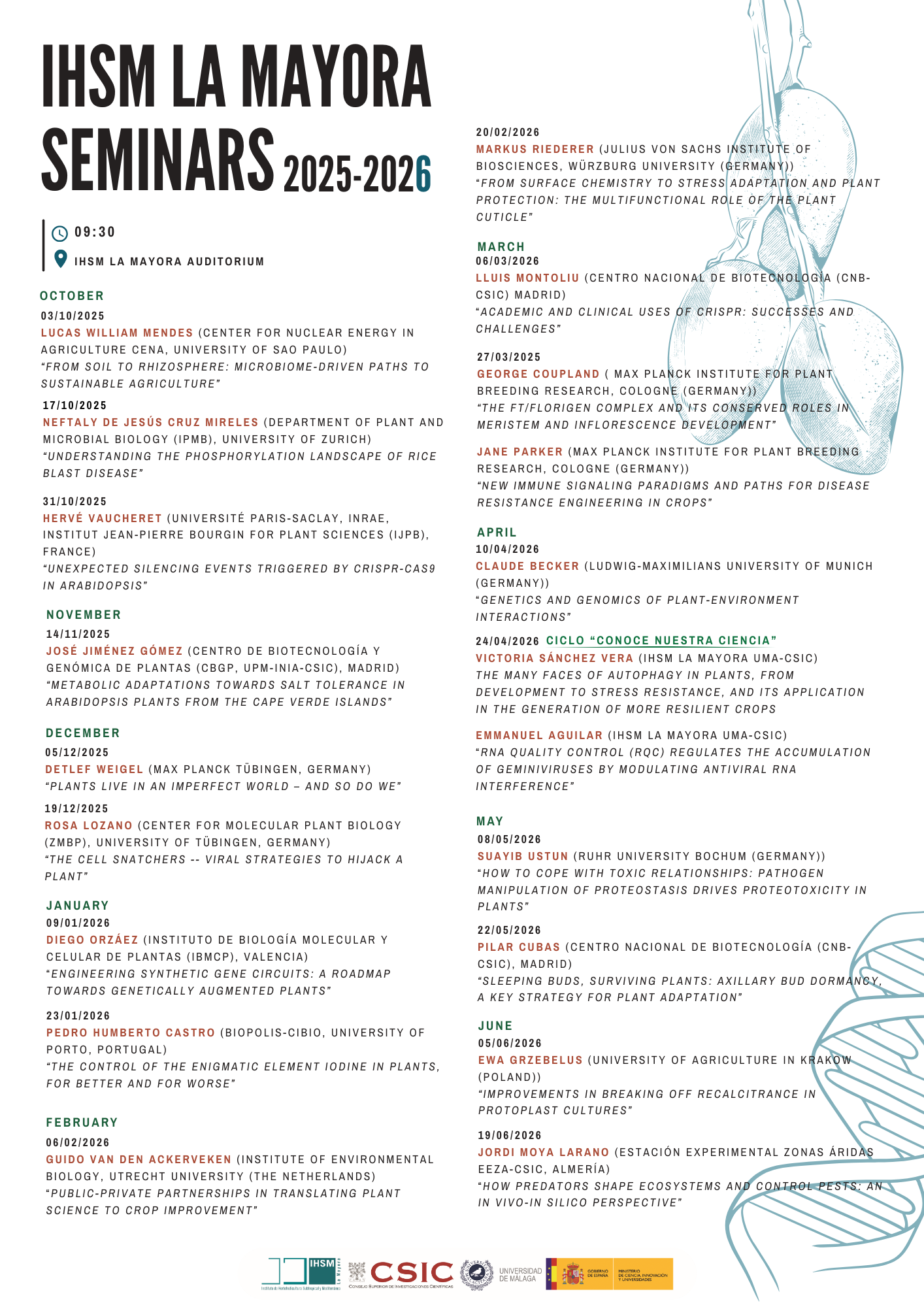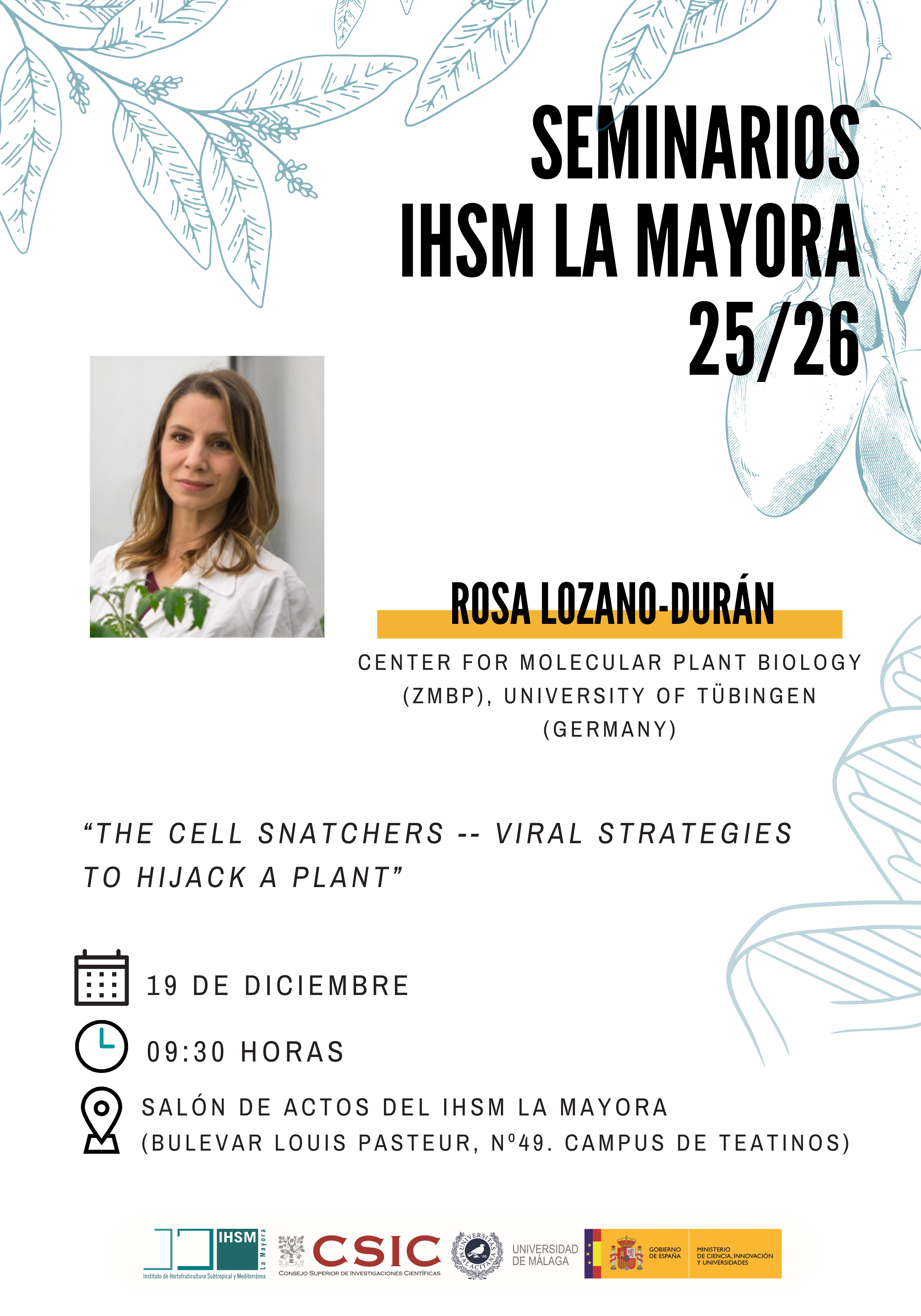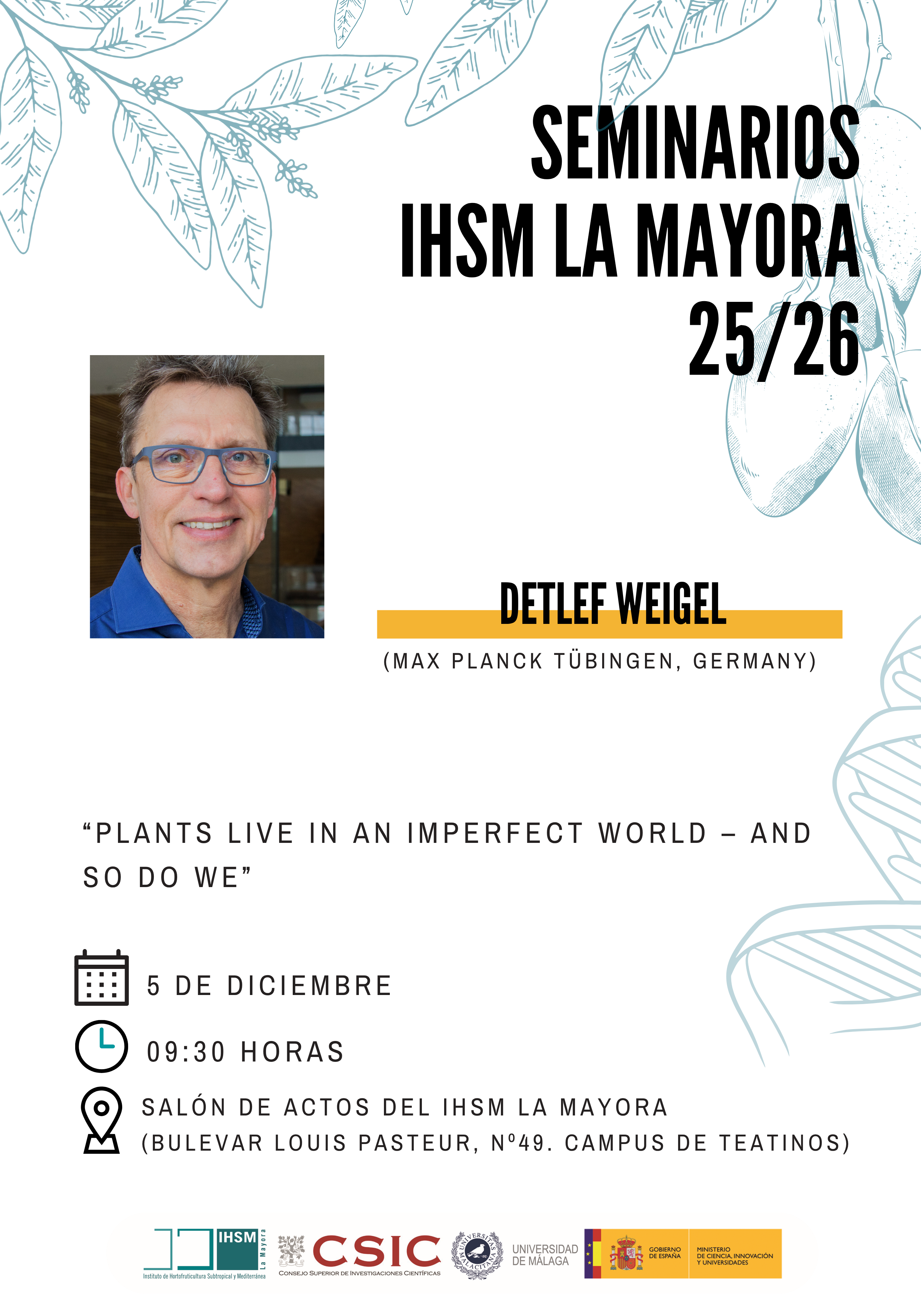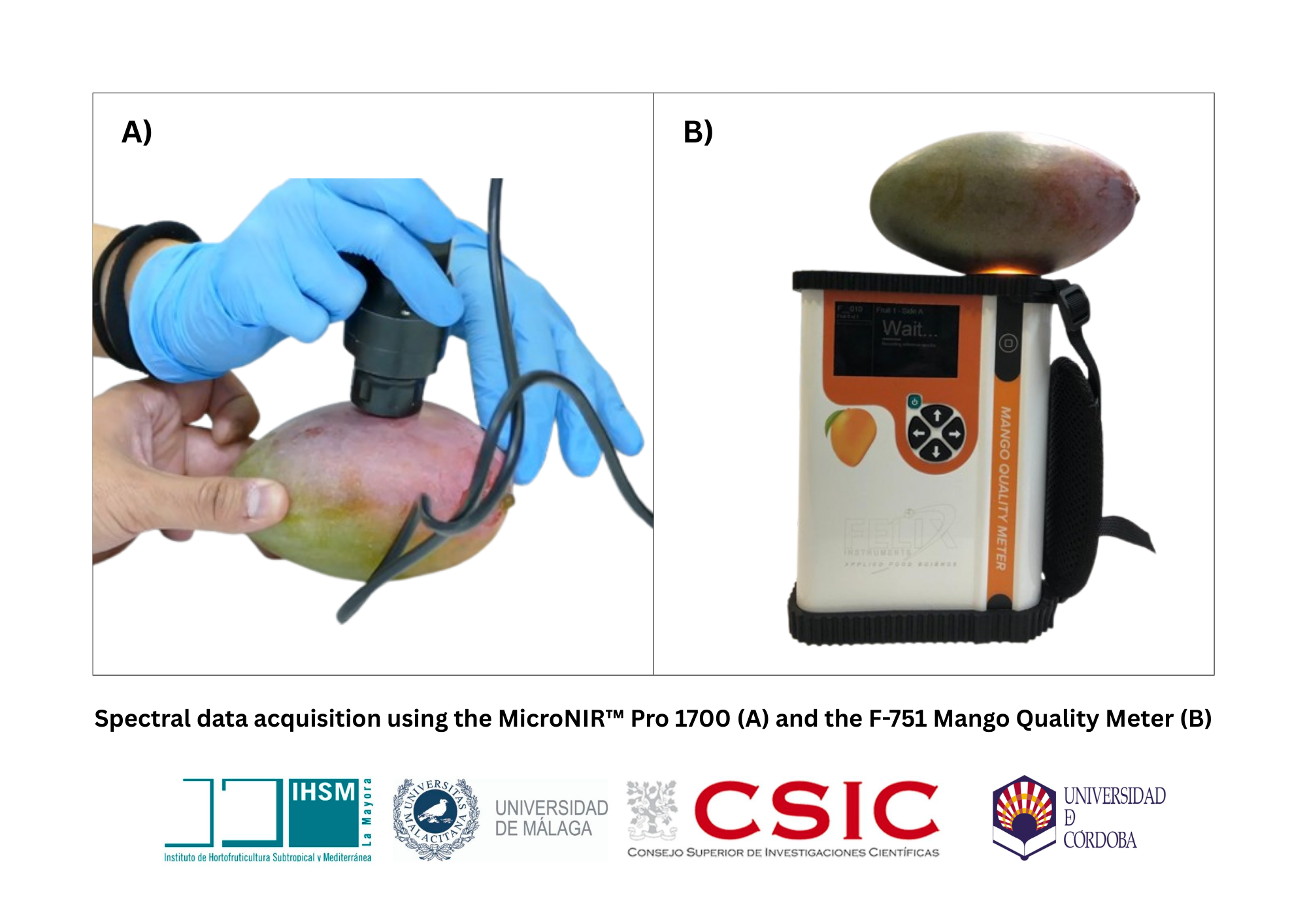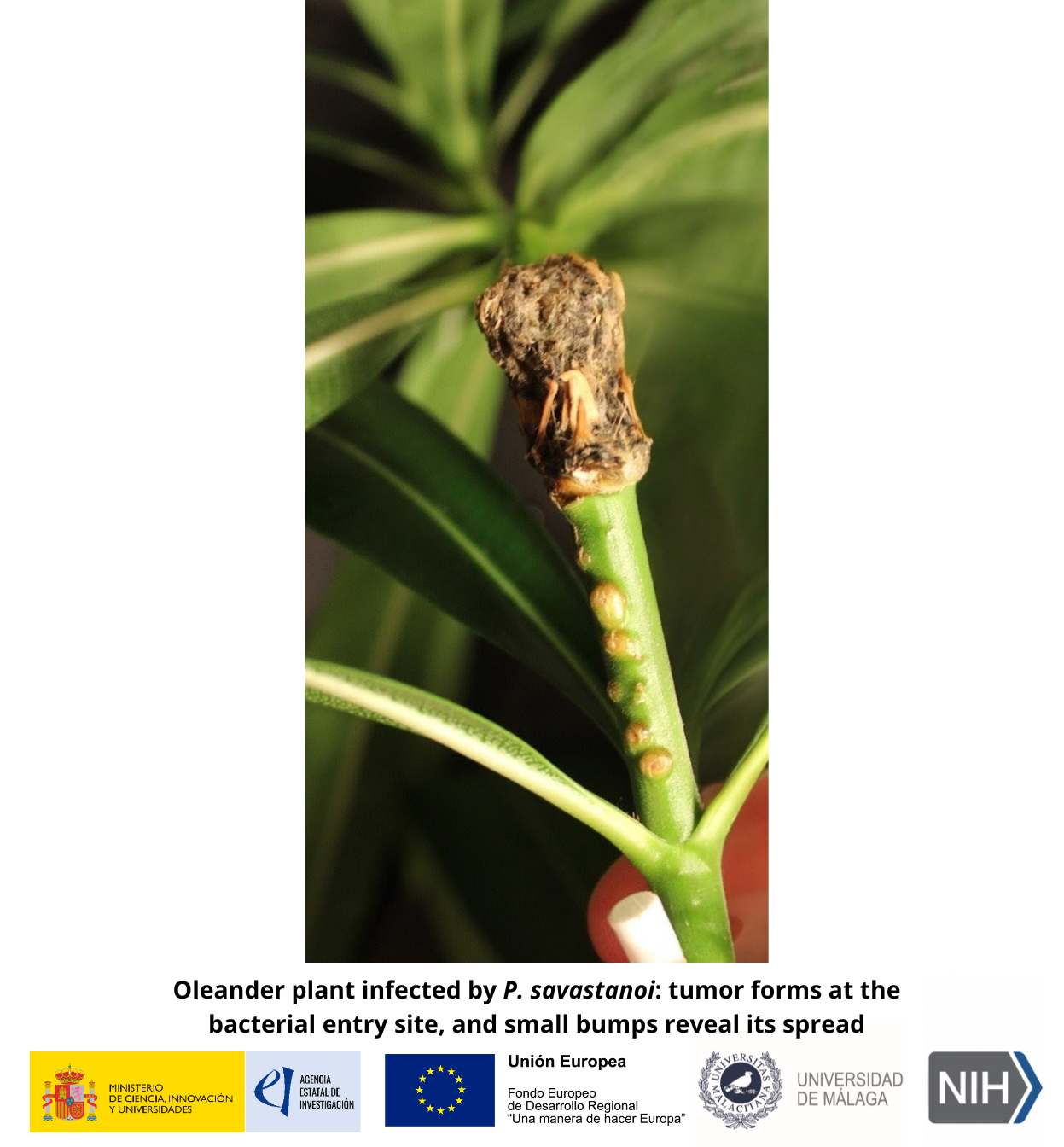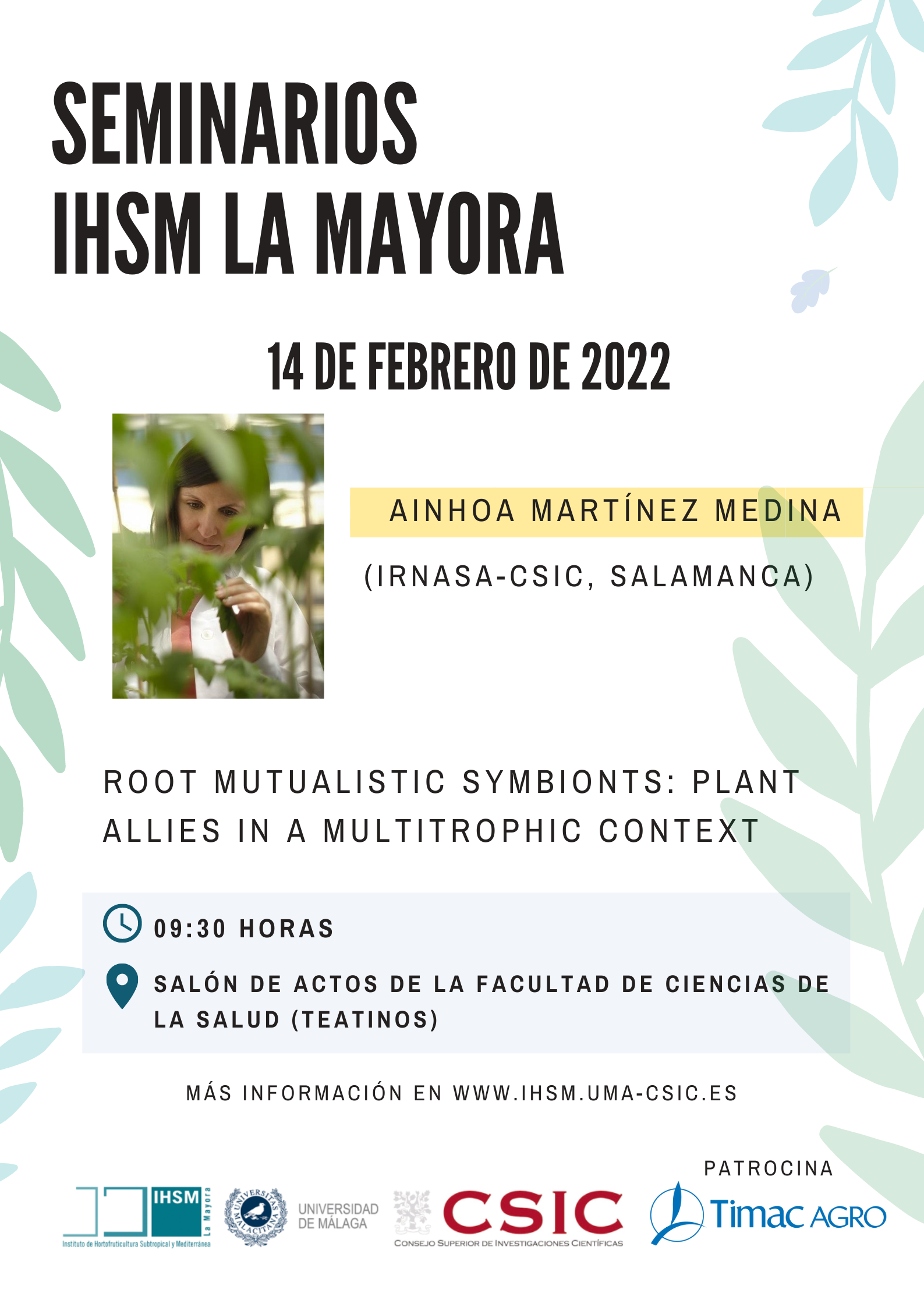
Seminarios IHSM La Mayora - Ainhoa Martínez Medina (Irnasa-CSIC, Salamanca)
ROOT MUTUALISTIC SYMBIONTS: PLANT ALLIES IN A MULTITROPHIC CONTEXT Arbuscular mycorrhizal (AM) and Trichoderma fungi are widespread soil inhabitants that establish symbiosis with the vast majority of terrestrial plants, conferring positive effects on plant growth, and immunity against pathogens and insect herbivores. Root microbial symbionts represent thus a promising contribution to sustainable pest management strategies. However, the mechanisms underlying the impact of root mutualistic symbionts on plant-insect interactions remain largely unknown. Besides inducing defenses against herbivorous insects, root mutualistic symbionts may further affect plant-insect performance via interactions at higher trophic levels, by enhancing the recruitment of natural enemies of herbivores (indirect defenses). In our research, we take an ‘integrative multiomics approach’, combining untargeted transcriptomics, metabolomics and genomics, with performance and behavioral studies to uncover key traits driving the impact of AM and Trichoderma fungi on the interaction of tomato plants with insect herbivores. Our research demonstrates that the root interaction with both fungal symbionts, influences the shoot metabolome and transcriptome, priming the plant for a strong accumulation of diverse defense-related compounds. Our research further indicates the impact of the root mutualistic fungi on the plant metabolome, cascades up affecting the metabolome of the insect herbivores fed on root-colonizing plants. As consequence, root colonization by the mutualistic symbionts strongly alters the dynamics of the plant-herbivore interaction by negatively affecting the growth and survival rates, and the insect metamorphosis success. In addition, root colonization by the mutualistic symbionts strongly affects the blend of volatiles released by the plants after herbivory, and enhances the attraction of natural enemies of the insect herbivores, indicating that the effect of the root mutualistic symbionts on herbivores can escalate up to further trophic levels. Biografía: I have focused my career on understanding how beneficial microbes in the rhizosphere microbiome can boost plant immunity and thereby stimulate plant health. During my PhD in the group of Soil-Plant Systems (CEBAS-CSIC, Spain), I found especially fascinating how the rhizosphere microbiome had the potential for inducing resistance systemically against leaf attackers. After completing my PhD, I became intrigued about the fundamental mechanisms driving this phenomenon. To investigate this, I moved to the lab of Dr. Pozo (EEZ-CSIC, Spain) as a Postdoctoral Researcher (2010-2012); and later to Prof. Pieterse´s lab at Utrecht University as a Marie Curie Postdoctoral Fellow (2012-2014, The Netherlands). There, I had the opportunity to investigate the molecular mechanisms driving induced systemic resistance and priming in species of agronomical interest. After this stage, I was willing to place all this knowledge into a more (agro)ecological frame. With this objective, I incorporated as a Project Leader to the group of Prof. van Dam, at the German Centre for Integrative Biodiversity Research (iDiv, Germany). There, I had the opportunity for starting a new research line on plant-microbe-insect multitrophic interactions. On 2018, I got a grant from the program “Attraction of Talent”, that gave me the opportunity for starting my own research group as Junior Group Leader at IRNASA-CSIC (Spain). By using state-of-the-art techniques and methods in molecular biology, biochemistry, genomics, and bioinformatics, I investigate the role of the complex rhizosphere microbiome in natural soils as an integral part of the plant immune response against insect pests.

